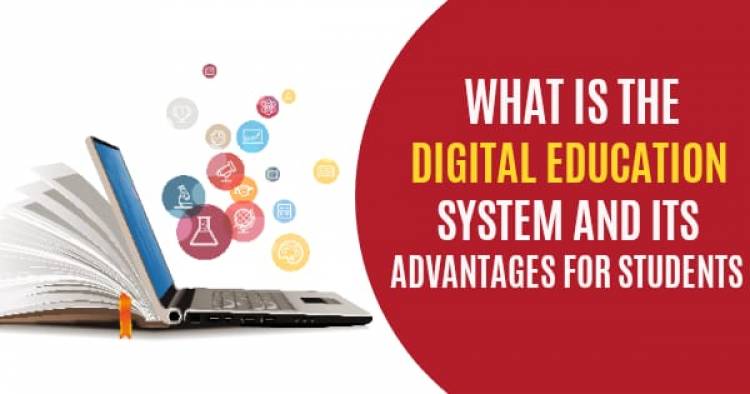Digital education in India leads to better student engagement and more motivated teachers
Digital education in India leads to better student engagement and more motivated teachers
Mumbai, September 07, 2021: Digital education leads to efficiencies in teaching and engaging students. Teachers experience more socio-emotional benefits after learning to use technology in education and report greater efficiency through better content access, more effective lesson planning and classroom management. Using digital tools in education also facilitates a range of collateral benefits, from higher student attentiveness to better parent-teacher engagement.
These are some key findings from a large-scale pilot on digital education in India. The study, titled ‘Equipping, Enabling, and Advancing Digital Education in India’ was conducted by the Boston Consulting Group (BCG) in partnership with Schoolnet and Google for Education. The first-of-its-kind study covers the impact of digital tools on adoption, usage, and effectiveness of digital education across 50,000 teachers in 3 different states in India, straddling different socio-economic, language and digital familiarity contexts.
“Even in India’s diverse educational system, digital education unlocks immense benefits, numerous use-cases and creative adaptation for both students and teachers. This is abundantly clear from the extensive data and insights we examined as part of this study”, said Rajah Augustinraj, BCG Director and lead author of the report.
Covid-19 directly affected over 250 million students across the country. The resulting lockdowns drove teachers, parents, and schools to adopt digital tools for lesson delivery, providing learning materials and performing assessments for students. Still, the efficacy of learning remained low as schools, teachers and students adapted commonly used tools and communication methods to meet the wide-ranging requirements of delivering learning online. These issues were particularly exacerbated for students in rural areas or from low-income families.
It was in this context that BCG partnered with Schoolnet to study the impact of a multi-state pilot of Google for Education tools. The pilot conducted by Schoolnet in coordination with Google for Education covered 50,000+ teachers across 3-states and varying contexts of language, socio-economic and digital familiarity. In keeping with the goals of the National Education Policy (NEP), the pilot was conceived to assess the impact of interoperable digital tools on teaching and learning; and identify a path forward for full-scale implementation.
“For years, the focus has been on expanding access to technology inside and outside classrooms. Still, as teachers started utilizing a variety of digital tools in the wake of nationwide lockdowns we realized that for digital learning to be effective, the solution suite was just as important as enabling access. This pilot provided the ideal setting to assess and ideate on the path forward for digital learning in India”, said Bani Dhawan Head of Google for Education, India and South Asia.
Using a robust impact assessment framework, the report presents analysis from a wide-range of data from training sessions, pre- and post-training adoption/usage patterns, focus group discussions, and deep-dive 1:1 interviews. It provides detailed insights into how digital tools are adopted and used in different contexts, variations in tool preferences by teacher
demographics, context-specific workarounds to meet specific teaching/learning needs, and how teachers plan to incorporate digital tools into teaching even after schools reopen.
The analysis provides a clear picture of the benefits of digital tools in education—from access to better teaching content, more effective lesson planning and delivery, efficient classroom management to easing student assessments. Over 75% of teachers reported that the digital tools made teaching easier; 65% of teachers were more comfortable using technology for day-to-day schoolwork after state-led training programs; and the majority of teachers pointed to greater efficiencies in classroom management and more creativity/innovation in lesson delivery. In addition, they also reported collateral benefits ranging from higher student attentiveness to better parent-teacher engagement. Finally, the data points to strong willingness (and indeed, desire) from teachers to adopt and use digital tools as an integral part of their teaching post-lockdowns.
Based on the findings and detailed insights, the report recommends addressing barriers like access to devices and the internet, and supporting enablers like training and ecosystem engagement to drive uptake of digital learning in education. Further, recognizing the Indian education system’s complexity and diversity, the report presents a comprehensive framework that can help any school, district or state to enable full-scale adoption of digital learning in education.
“The path forward for digital education in India involves bringing together an ecosystem of public, private, and social sector players within a comprehensive strategic vision; and equipping administrations, schools and teachers with the tools, approaches and training necessary to unlock the benefits of digital learning at-scale”, said Rajah Augustinraj.
About Boston Consulting Group: Boston Consulting Group partners with leaders in business and society to tackle their most important challenges and capture their greatest opportunities. BCG was the pioneer in business strategy when it was founded in 1963. Today, we help clients with total transformation—inspiring complex change, enabling organizations to grow, building competitive advantage, and driving bottom-line impact. To succeed, organizations must blend digital and human capabilities. Our diverse, global teams bring deep industry and functional expertise and a range of perspectives to spark change. BCG delivers solutions through leading-edge management consulting along with technology and design, corporate and digital ventures—and business purpose. We work in a uniquely collaborative model across the firm and throughout all levels of the client organization, generating results that allow our clients to thrive.
About Google: Google's mission is to organize the world's information and make it universally accessible and useful. Through products and platforms like Search, Maps, Gmail, Android, Google Play, Chrome and YouTube, Google plays a meaningful role in the daily lives of billions of people and has become one of the most widely known companies in the world. Google is a subsidiary of Alphabet Inc.






















